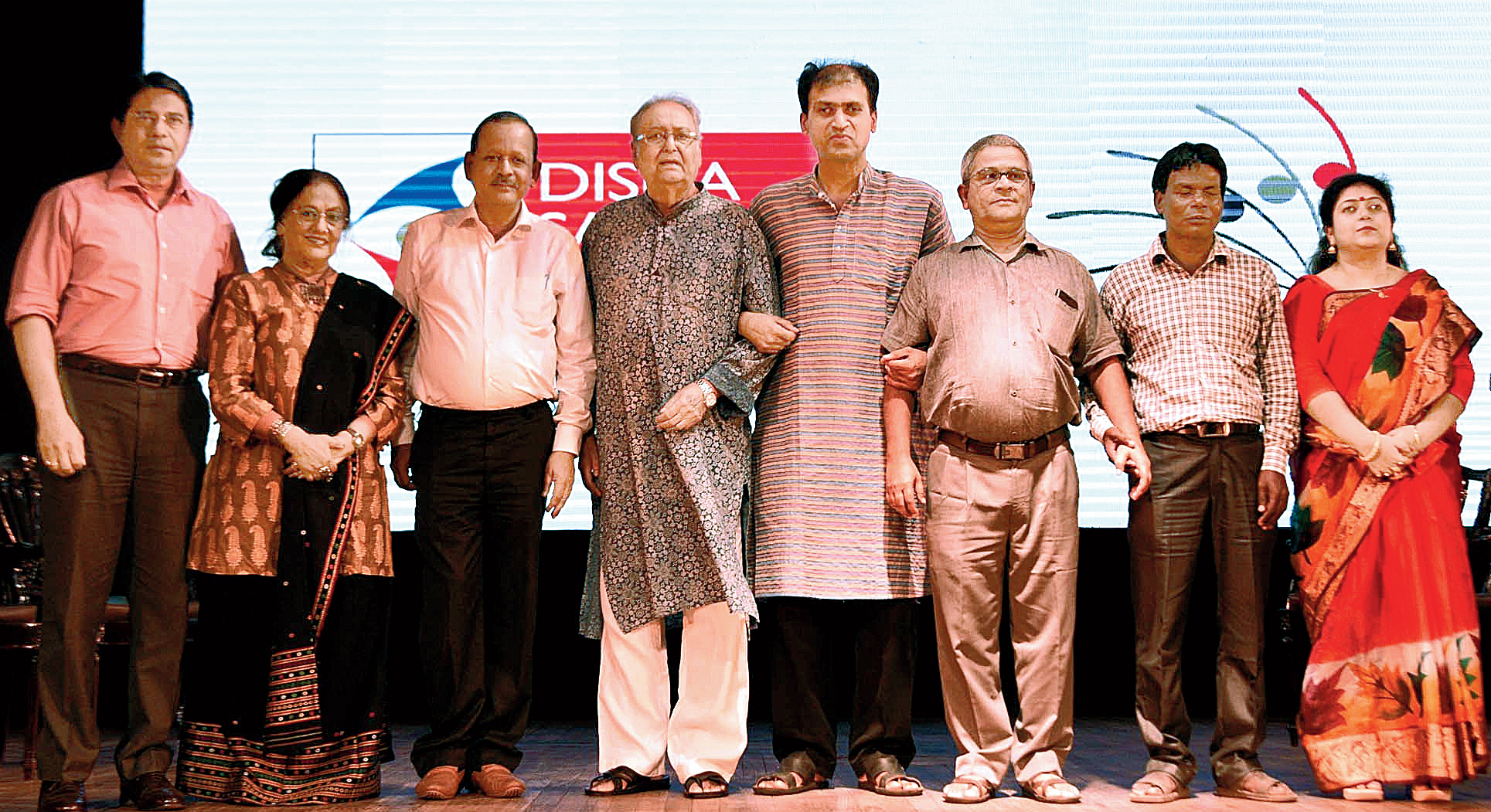A 38-year-old woman who teaches law at a city college, a 44-year-old long-distance swimmer and a theatre group were felicitated at GD Birla Sabhagar on Friday afternoon.
Apart from personal accomplishments, what binds the three together is blindness.
Mousree Basistha, who lives in Salkia, Howrah, started having problems with her vision when she was six years old. She was completely blind by the time she was 16.
Kanai Lal Chakraborty, a Nadia resident who has competed in a 81km “swimmathon”, lost his vision at an even younger age.
Shyambazar Blind Opera, a theatre group whose members are visually impaired, was formed in 1996.
As the audio-visual stories of the awardees of Disha Samman 2019, organised by Disha Eye Hospitals, played on the stage screen, the session celebrated the triumph of human spirit.
“A doctor had advised my parents not to spend money on my education. Instead, invest a good amount in a fixed deposit,” Basistha, an assistant professor at South Calcutta Law College, said on the stage as the audience broke into a thunderous applause. Her parents were in the audience.
She lost her sight to retinitis pigmentosa — a genetic disorder that leads to breakdown and loss of cells in the retina.
Before cracking the state college service commission exam this May, she taught at Kolkata Police Law Institute at the Alipore Body Guard Lines.
Basistha, in her own words, is “Braille illiterate”. She used to record lessons on cassettes to memorise them. That is how she did her graduation, master’s and doctorate. Basistha said her next target was teaching abroad.
Chakraborty, the son of a tailor from Krishnagar, was the second awardee.
Chakraborty learnt swimming the hard way. He was thrown into a pond by village pranksters. He could not see but guided by his sister, he managed to float.
He has come a long way since. After doing well in a series of swimming competitions over the years, Chakraborty took part in one of the world’s longest swimming competitions — the 81km swimmathon on the Ganga, organised by the Murshidabad Swimming Association — in 2013.
He swam the course in 12 hours and 14 minutes. He could not make it to the podium but won hearts as he was the only contestant without vision.
He is the subject of Swimming Through the Darkness, a documentary by Calcutta-based filmmaker Supriyo Sen, which had a world premiere at the Busan International Film Festival last year. The documentary had won a national award last year.
But Chakraborty’s biggest satisfaction lies elsewhere. During his practice sessions, he has saved several people from drowning in the Jalangi river. “I once saved a woman and her two daughters. I don’t know how I managed it but when you have willpower, you can do anything,” he told Metro.
His next dream: crossing the English Channel.
Ashoke Pramanick, the founder of Blind Opera, is a theatre veteran and a sighted person. He spent 25 years in Nandikar, one of Calcutta’s well-known theatre groups. A project led him to staging a play with students of the Calcutta Blind School in Behala in 1994. One thing led to another and Shyambazar Blind Opera was formed two years later. In 2000, the group won an award from the Paschim Banga Natya Akademi for Manasa Mangal.
The group has staged Rabindranath Tagore’s Raja and Raktakarabi as well.
“Theatre gives these people an identity beyond their visual impairment. They, too, laugh, cry and dream. Why can’t they act?” he asked.
Pramanick was accompanied by Kamal Kanjilal, an actor from the group, while receiving the award. Apart from theatre, Kanjilal has acted in Gautam Ghosh’s 2001 film Dekha.










